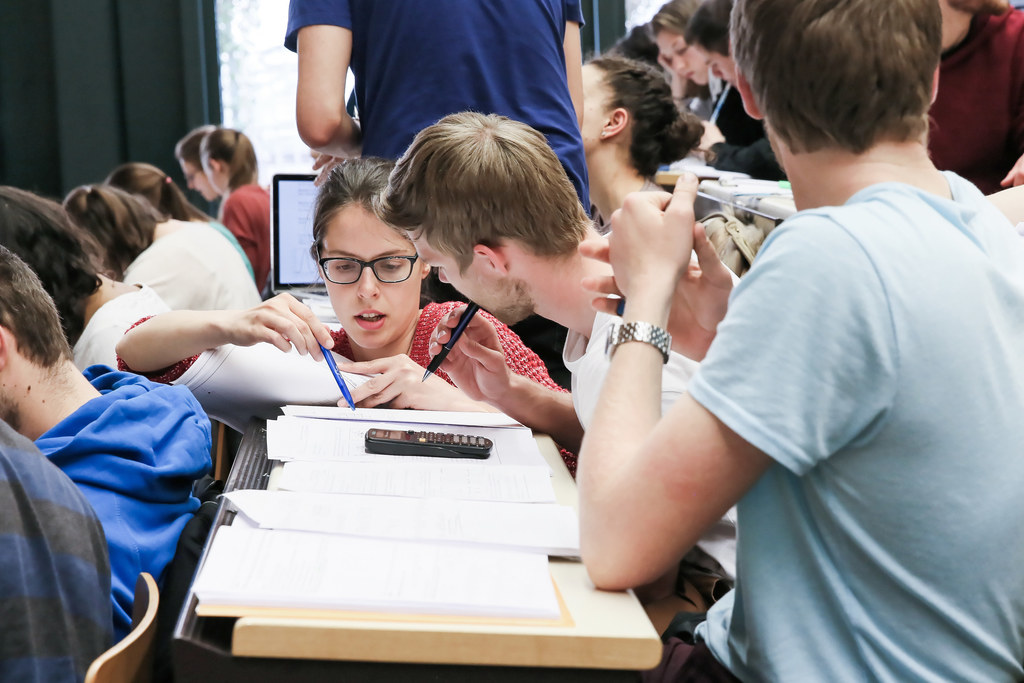Supportive Learning Environments in the 1st year at EPFL
Study success and study progress are topics of great interest in STEM education research and this is especially the case in the pivotal first year.
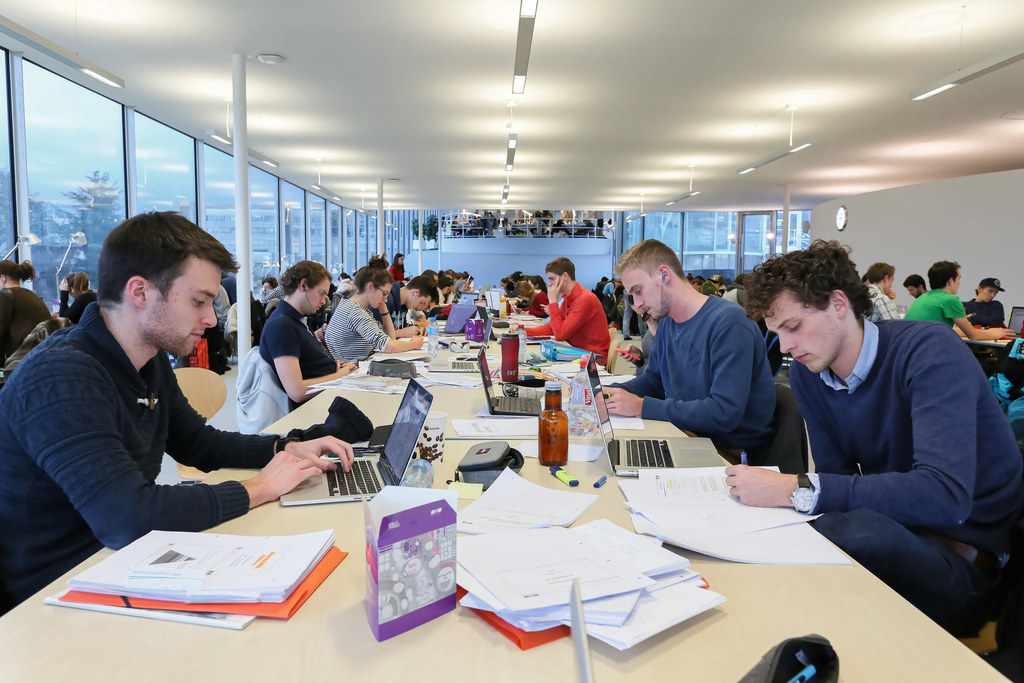
At EPFL, a high proportion of students who enroll in a study program leave the institution without completing their first year. This disproportionately affects students with a weaker mathematics background as well as women; both demographics seem to be more at risk as introductory courses play a significant role in pressuring and discouraging them from continuing their studies.
To cope with this unwanted situation, EPFL set up a series of course and exam redesigns targeting those introductory courses, including the adoption of flipped classrooms and exams with fewer questions (Hardebolle et al., 2022) . From 2021, additional support measures and adapted pedagogical practices were introduced with the aim to improve retention and achievement in first-year mathematics courses.
This page details the implementation of reduced time pressure examinations and additional support measures deployed between 2021 and 2023 in a Mathematical Analysis introductory course. More precisely, it looks at the findings from a study that addressed how student support improves their achievement in their first university mathematics courses and how these affect student progress in subsequent courses.
Previous efforts
STEM undergraduate students at our university complete two Mathematical Analysis courses during their first year: one in the autumn semester and one in the spring semester. To enhance student success in these challenging courses, several supporting initiatives have been progressively implemented over three academic years.
Evolution of Support Measures
- 2020/21 Academic Year
The first intervention introduced optional Saturday “drop-in” tutorial sessions to provide additional learning support for students who needed extra help.
- 2021/22 Academic Year
Building on the previous year’s foundation, three new support measures were added:
- An optional online preparatory course designed to strengthen students’ foundational mathematical knowledge
- Recorded class videos made available for independent study and review
- Extended exam duration for Mathematical Analysis II students, who received an additional 30 minutes while maintaining the same number and difficulty level of questions
The Saturday drop-in tutorials continued alongside these new initiatives.
- 2022/23 Academic Year
The comprehensive support package was maintained with one scheduling adjustment and one expansion:
- Drop-in tutorials were moved from Saturday to weekday evenings for better accessibility
- The extended exam time benefit (additional 30 minutes with unchanged content) was expanded to include both Mathematical Analysis I and II students
- The online preparatory course and recorded lectures remained available
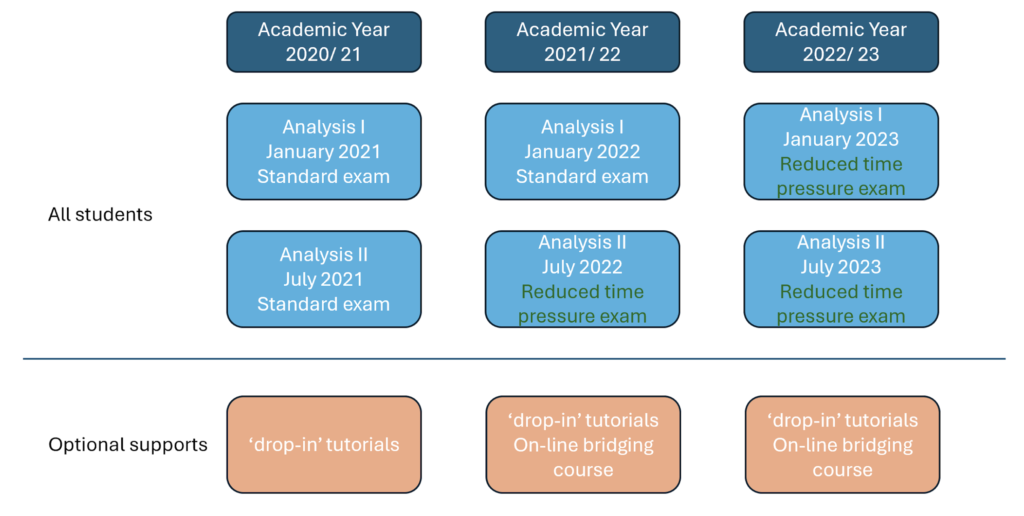
These progressive enhancements demonstrate a systematic approach combining both targeted optional resources for motivated learners and universal accommodations that benefit the entire student population.
The study
At the initiative of the Propedeutic Center (CePro) in partnership with the Teaching Support Center (CAPE), the Center for Learning Science (LEARN) has been involved in a study aimed to investigate the effects of decreasing time pressure at exam, as well as other supportive measures, on academic performance for different categories of students considered at risk of low study progress and poor academic achievement, such as having a weaker mathematics background and being a female.
Research approach
This study relied on quantitative methods and more precisely, the research took on a secondary data analysis in order to process the data already available in IS-Academia (the institution’s learning management system) for several introductory courses, such as Analysis 1 and Analysis 2. The study population included over 90% of incoming students departing from high schools in either Switzerland or France. Students from French or Swiss high schools stemmed from a variety of backgrounds, including:
- Students who had studied in a Swiss high school and who had specialized in Physics and applications of Mathematics in their studies for their high school diploma (we refer to these as MathMajor_CH students for short)
- Students who had studied in a Swiss high school and who had specialized in something other than Physics and applications of Mathematics in their studies for their high school diploma (MathMinor_CH students for short)
- Students who had studied in a French high school, all of whom had specialized in Physics and applications of Mathematics in their studies for their high school diploma (MathMajor_FR for short)
Findings
Overall Performance Improved
Students’ exam scores increased consistently across all three years as more support was gradually added. This wasn’t just about making tests easier—the same material was covered with the same difficulty level, but students had more time and resources to demonstrate their knowledge.
The Gender Gap Narrowed
Female students showed particularly strong improvements, especially in 2023. While a performance gap between male and female students persisted, it shrank significantly following the implementation support measures.
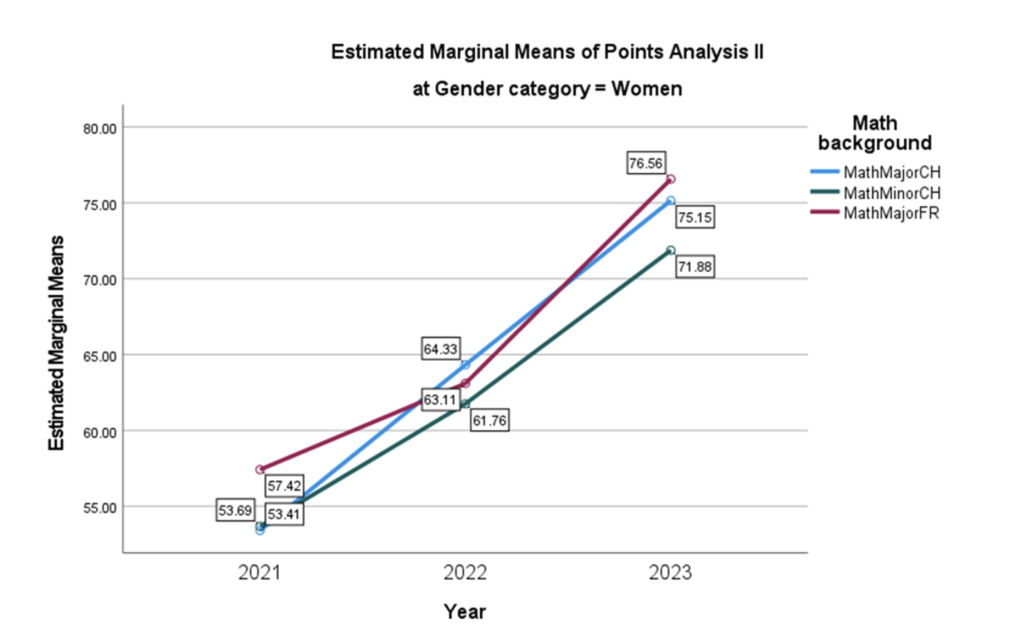
Educational Background Mattered Less Over Time
Students with weaker mathematical backgrounds (those who took math as a minor subject in high school) initially performed much worse than their peers. However, by 2023, this gap had narrowed considerably, particularly among Swiss students.
Students Actually Got Better at Learning Math
Perhaps most importantly, students didn’t just perform better on individual exams—they showed “learning gains,” meaning they improved from their first math course to their second. In 2021, students typically performed worse on the more advanced second course. By 2023, most students were actually performing better on the advanced material than they had on the basics.
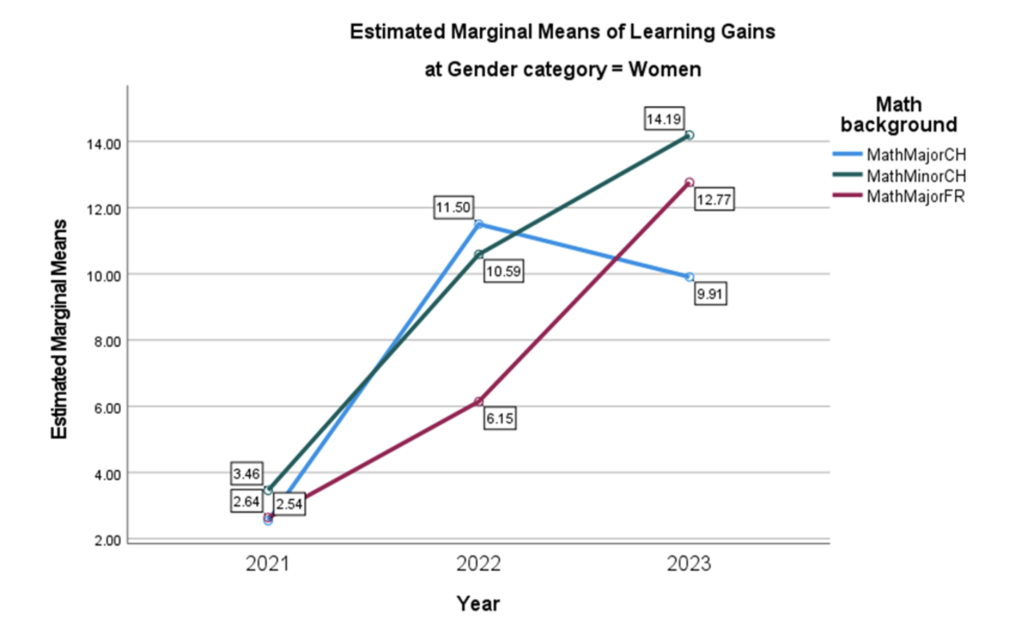
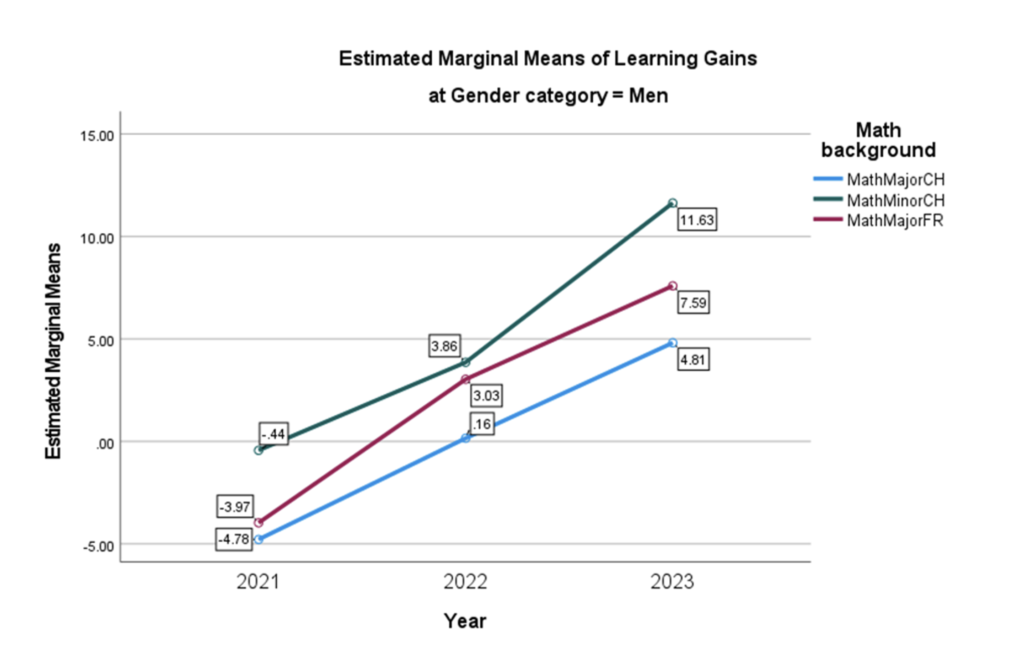
Conclusion
Critics might worry that making courses more supportive would lead to underprepared students advancing to harder material. The data shows the opposite : students who benefited from the support measures continued to succeed in subsequent courses.
Impact
These findings suggest that many students struggle with mathematics not because they lack ability, but because they lack adequate time and support. Simple interventions—like extending exam time, providing extra tutorials, and offering preparatory materials—can help students demonstrate their true capabilities and build confidence for more advanced work.
The results are particularly encouraging for addressing educational equity, showing that support measures can help close performance gaps without compromising academic standards.
Related lunch&LEARN sessions
- lunch&LEARN: Inclusive teaching in Linear Algebra (watch on YouTube)
- lunch&LEARN: Preparing to learn linear algebra (watch on YouTube)
Useful links
Publications
Niculescu, A. C, Hardebolle, C., Verma, H., Tormey, R., & Deparis, S. (under review). Supportive Learning Environments for Passing Introductory Mathematical Analysis Courses. International Journal of Research in Undergraduate Mathematics Education


